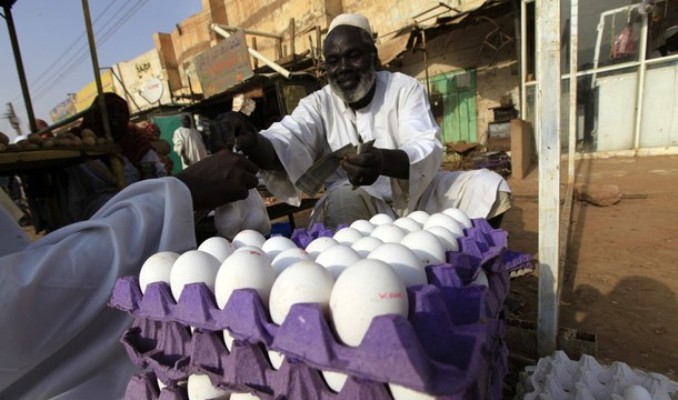Sudan didn’t “reap fruits” of Washington’s decision to ease sanctions: official

May 26, 2017 (KHARTOUM) – The deputy governor of the Central Bank of Sudan (CBoS) Badr al-Din Qurashi Thursday acknowledged that Khartoum didn’t benefit from Washington’s decision to ease the economic sanctions saying investors look forward to seeing a full lift of sanctions in July.
Qurashi was speaking in a forum on the economic sanctions held in Khartoum attended by the U.S. Chargé d’Affaires Steven Koutsis and Tarek Fahmy the Acting Director in the U.S. Department of State’s Bureau of Economic and Business Affairs, Office of Sanctions Policy and Implementation.
He pointed out that they expected Sudan’s economy to rebound soon after Washington’s decision to ease the trade and economic sanctions last January, saying the government started to take the necessary measures to prepare the economy for the post-sanctions era.
According to Qurashi, the benefits from the decision have yet to be realised for several reasons including the existence of Sudan’s name on the list of states sponsors of terror which prevents Sudan from receiving any loans or financial aid under the U.S. Foreign Assistance Act and the US Export Administration Act.
Sudan was placed on the U.S. terrorism list in 1993 over allegations it was harbouring Islamist militants working against regional and international targets.
He also pointed that the international banks, especially U.S. banks, refrained from making transactions with their Sudanese counterparts, saying foreign investors fear to enter into large investments in Sudan before the full lifting of sanctions.
“The impact of the sanctions on the Sudanese banking sector was very serious and effective. It deprived it of exceptions and licenses to import basic goods and services, which led to the creation of a shadow banking services market”.
Qurashi added the sanctions have prevented the Sudanese banking sector and Sudanese citizens from using international payment and settlement systems and bank transfers, saying the banks were also prevented from acquiring advanced U.S technology.
“Overall, U.S. sanctions are one of the most important reasons for the deterioration of the economic and living conditions in Sudan over the last two decades because it raises the cost of production and the general price level which in turn reduces the competitiveness of Sudanese products,” he said.
The Sudanese official further reviewed his government’s efforts to combat money laundering and terrorism financing, saying it culminated in the Financial Action Task Force (FATF) announcement that Sudan fully complies with all legal and institutional requirements to combat money laundering and terrorism financing.
In October 2015, FATF, an international agency on combating money laundering and terrorism financing, removed Sudan from its blacklist, saying the east-African nation is no longer a threat to the integrity of the international financial system.
Last January, former President Barack Obama eased the 19-year economic and trade sanctions on Sudan. The decision came as a response to the collaboration of the Sudanese government on various issues including the fight against terrorism.
Next June, several U.S. administration agencies will decide to confirm the decision of President Obama to permanently lift sanctions on Sudan or to maintain it.
(ST)
